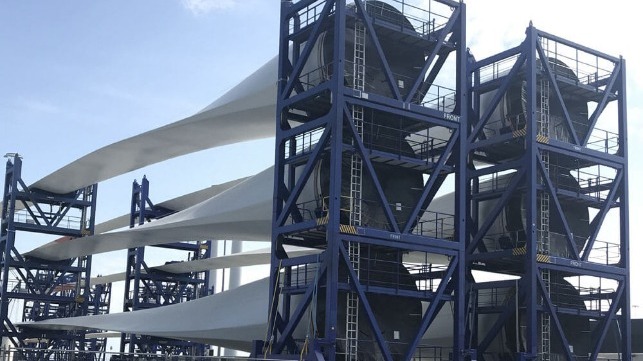Op-Ed: Offshore Wind in Asia Pacific: A Global Approach to a Local Issue

The Asia-Pacific region boasts substantial potential for offshore wind energy as a clean and renewable power source, with extensive coastlines and favorable wind conditions.
China, Japan, South Korea, Taiwan, the Philippines, and Vietnam have kick-started their offshore development projects, while India, Malaysia, and Australia are looking to develop their offshore capabilities by the late 2020s.
The growing significance of offshore wind underscores the prediction made by the International Renewable Energy Agency in a recent report that Asia-Pacific is “poised for a remarkable offshore wind energy expansion, with planned installations in China, Taiwan, South Korea, Japan, and Vietnam expected to reach a combined capacity of over 60 GW by 2030.”
Even now, the region already boasts more than half of the 260 offshore wind farms in operation worldwide as of January 2023, according to a Statista report that tracked data from Global Energy Monitor.
But, it is not a united bloc of nations with simplified, streamlined customs and regulations. My decade of experience in the region has demonstrated that no two countries have the same risk profile during project planning, contracting (budgeting), and execution.
The greatest risks to any project are assumptions wrongly made during the planning phase based on previous experience elsewhere, with project managers all too often left to “make it work” with strained time and budget constraints.
Collaboration between the various parties involved in offshore installations, from project managers and developers to logistics and energy support service providers and shipping lines providing offshore supply and installation vessels, is now more vital than ever. Transparency and longevity must be at the heart of such collaboration.
That need for openness is a must in tackling the regulatory minefield of offshore wind farm development in the region.
Partners also need to brace themselves for the regulatory headwinds that can make developing an offshore wind farm truly viable. Inadequate policy frameworks, delays in issuing permits, and lack of government support slow offshore wind project development, limiting opportunities to reduce project costs. Asia-Pacific can learn some valuable lessons from the experience of Europe in this respect.
Local experience and expertise will be key in identifying and overcoming the unique challenges in each specific location during the planning stage. While offshore development projects are coming thick and fast, we have seen that Asia lacks the necessary experience and supply chain capacity. Potentially, that could hinder project execution, particularly outside of China. Vessels flying the flag of a major Asia-Pacific nation often require a minimum number of local crew members, so developing and harnessing local talent is crucial.
It’s no surprise, therefore, that considerable resources are now being plowed into developing the capacity to stimulate local industries and boost the competitiveness of its energy capabilities. Ports with land space, storage, facilities and deepwater berths to support offshore wind farm development continue to come online but, for now, they are few and far between.
There are players in the region that can help fill that gap until Asia fully establishes its own capabilities, including those with a proven track record in Europe. By working with such proven partners Asia-Pacific will go some way to reaching its lofty offshore wind energy targets.
For now, however, the region must continue to look overseas to understand how to best realize its renewable ambitions and tailor its plans effectively. If the Asia-Pacific region is to realize its potential in developing crucial offshore and renewable energy infrastructure, then remaining flexible, bearing the brunt of regulatory risks, and taking a global approach to a local issue will be vital steps.
About the author: Garth Harrison is Business Development Manager – Asia Pacific & Indian Subcontinent, for the GAC Group.
The opinions expressed herein are the author's and not necessarily those of The Maritime Executive.
